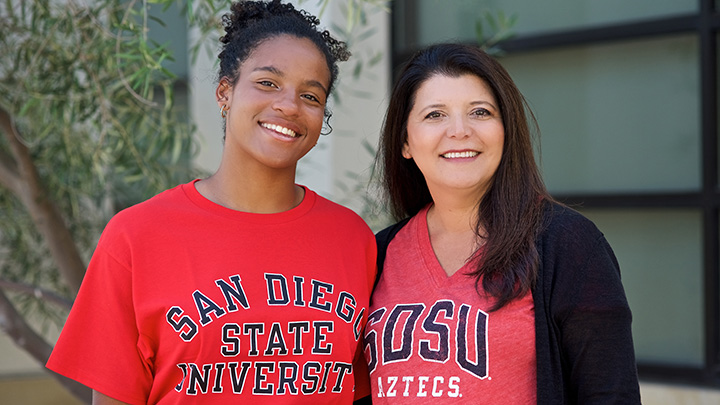Using Data to Address Barriers to Student Success
Data Champions Program Poster Session is an opportunity for participants to share data-based solutions to student success concerns.

San Diego State campus administrators, faculty and staff have come together in an effort to make data-informed decisions regarding student success at SDSU. It is called the Data Champions Program. The results of the student success research and projects are set to be put on display on Monday, May 6, from 11:30 a.m. – 1:30 p.m. in Manchester Hall.
The year-long program allows participants to collect data, complete an analysis and identify solutions to better serve SDSU students. Monday’s poster session will be an opportunity to discuss their work and the results. There are projects from all across campus to best help every student in every college facing a variety of challenges.
The program is intended to help participants develop data-based solutions and the poster session allows them to present their ideas to the correct people. Paul Justice, director for interdisciplinary studies and undeclared, has been researching the need for transition advising at SDSU and the impact it could have on undergraduate success.
“The Data Champions Program and poster session are important to me because it provides me with the opportunity to directly reach the top academic officers on campus and let them know what I think needs to be done to improve undergraduate education at SDSU,” said Justice.
Data Champions Program
The Data Champions Program is motivated by the California State University (CSU) Graduation Initiative 2025 (GI2025), SDSU strategic goals, and efforts to expand University data capabilities. GI2025 aimed to increase graduation rates across year and reduce inequality in graduation rates. Audrey Beck, assistant professor and undergraduate advisor in the school of sociology, has been working on increasing graduation rates within the College of Arts and Letters by focusing on the disparities in graduation timing by a number of factors including, race and ethnicity first generation status and financial need. According to Beck, the initiative’s success has helped the Data Champions program become more impactful on campus.
“Although the program centered around GI2025, it has enhanced our ability to analyze student data and come up with data-informed recommendations that I think will carry over into future efforts,” said Beck.
The faculty, staff and administration selected to serve as their college’s Data Champion and work to identify potential barriers to student success. They then collaborate with colleagues to develop data informed programs and initiatives in support of student success.
“Evidence-based assessment is something I find very important,” said Beck. “With an initiative like this which has already been politically institutionalized, it was even more critical for the analysis of evidence to catch up with the timeline of the goals.”
The program, while designed to directly help the student body, effectively helps the university reach its goals.
“I see the daily challenges students are facing as well as their ambitious goals for their time here at SDSU,” said Beck. “If this program can shed light on how we can help them meet their personal goals, we will certainly increasingly meet our institutional goals.”
More information about the Data Champions Program and the poster session can be found here.



